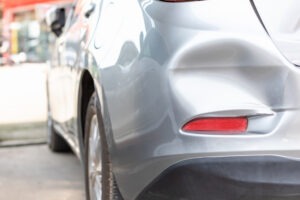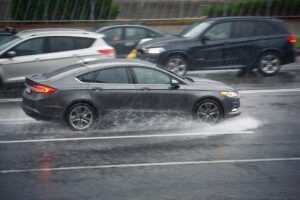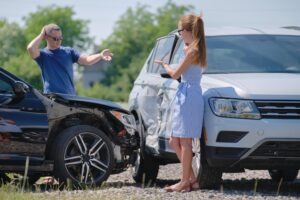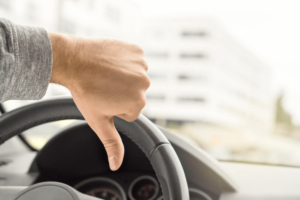
It happens in seconds. A bump at a stoplight. A scrape in a crowded parking lot. Suddenly, you’re sitting in your car, asking yourself: “Should I move my car after a minor car accident?”
The answer depends on safety, Florida law, and the details of the crash. Sometimes moving the vehicle makes sense. Other times, leaving it in place is the smarter move.
If you’re unsure how that choice affects your rights, a Fort Lauderdale car accident lawyer can explain what the law says, what insurers expect, and how your decision at the scene may shape your claim.
Florida Law and Safety on Moving Cars
Florida Statutes § 316.061 requires drivers in an accident to stop, exchange information, and call law enforcement if there are injuries or at least $500 in property damage.
State law also makes this clear: if you are involved in a minor crash and your vehicle is blocking the flow of traffic, you should move it from the roadway when possible. On Florida’s busy highways and city streets, staying put can create more danger, especially at night or during heavy rain.
If you are involved in an accident and your vehicle is blocking traffic, you should drive it to the shoulder or a safe spot if it still runs. But if you are involved in a minor crash and your vehicle is blocking the flow of traffic and it can’t be moved—or moving it would increase the risk—wait for help instead.
More people choose The Schiller Kessler Group because they know that we're a cut above other personal injury law firms.

What Insurers Want to See
Insurance adjusters often review the crash scene after the fact. They look at police reports, photos, and statements. If the vehicles were moved before officers arrived, they may question the accuracy of the record.
That’s why photos matter. Before moving your car, take pictures of the position of both vehicles, damage, skid marks, and anything else that shows how the crash happened. Even quick shots on your phone can preserve important details.
If the cars are blocking traffic, take photos first, then move them to safety. That way, you balance both legal and practical concerns.
Get Guidance From a Fort Lauderdale Car Accident Attorney
Accident scenes are stressful. In the moment, it’s hard to weigh safety against evidence. A Fort Lauderdale car accident attorney can explain how moving—or not moving—your car might affect your case.
At The Schiller Kessler Group, we’ve represented clients who moved their vehicles right away and others who didn’t. In both situations, what mattered most was documenting the crash properly and reporting it to law enforcement. With the right records, you still have a strong claim.
If you’re ever unsure, prioritize safety, take photos, and call the police. Those three steps protect you more than anything else.
Common Scenarios in Minor Crashes
Every accident plays out differently, but some patterns repeat:
- Parking lot scrapes: If someone hits your car at a grocery store in Orlando or outside a shopping center in Miami, you don’t need to leave the car sitting in a lane. Pull it aside, document the damage, and exchange information.
- Rear–end fender benders on I–95 or the Florida Turnpike: These often happen in fast-moving traffic. If your car still runs, move it to the shoulder quickly. Cars left in a travel lane can trigger chain-reaction collisions.
- Neighborhood stop sign collisions: In residential areas, you may have more space and less pressure to move right away. Use your judgment. If the street is narrow, moving to a driveway or side street may still be the safer choice.
No matter where it happens, the same rule applies: protect yourself first, document the scene, and then move the car if it’s safe. Those choices can make a big difference later when insurance questions come up.
What Not to Do After a Minor Accident
While moving your car may be the right choice, avoid making bigger mistakes that could hurt your claim:
- Don’t leave the scene. Even in minor accidents, Florida law requires you to stop and exchange information.
- Don’t assume no one is injured. Some injuries show up hours later. Let medical professionals decide.
- Don’t skip calling the police. Even if the damage looks minor, a report creates an official record that helps later.
Small decisions at the crash site can carry large consequences down the road.
Why Documentation Matters
Photos and reports often decide how a case turns out. If the other driver later changes their story, your pictures of the original car positions may be the difference between winning and losing.
Documenting also prevents insurers from twisting the facts. If all they see is two cars pulled into a parking lot, they may argue about who caused the crash. Pictures of the scene provide context that words can’t.
What to Expect From Law Enforcement in Florida
If police respond to your crash anywhere in Florida, they’ll want to know whether the cars were moved. Officers often appreciate when drivers clear traffic, but they still need accurate details.
Showing them your photos right away helps confirm the original car positions and gives them the information they need for their report. In cases with only minor property damage under $500 and no injuries, you may be directed to Florida’s online crash portal instead of filing an in-person report.
Either way, you’ll receive a crash report number, and insurers almost always require that to process a claim.
Should I Call a Lawyer After a Minor Crash?
Even minor crashes can spiral when insurers get involved. What looks like a small dent may hide costly frame damage. A sore neck may later turn out to be a herniated disc.
This is where a Fort Lauderdale car accident attorney can guide you. Whether or not you moved your car, what matters now is protecting your rights. An attorney can review your photos, medical records, and the police report to build a case that reflects what really happened.
Call The Schiller Kessler Group
So, should I move my car after a minor car accident? Sometimes yes, sometimes no. The right choice depends on safety, the condition of your car, and your ability to document the scene.
At The Schiller Kessler Group, we bring more than three decades of experience to car crash cases. We’ve worked with over 30,000 clients across the state, and we know how insurers think.
Call us today to speak with a team that moves quickly, listens closely, and builds a case that shows what really happened.
Injured? Call The Aggressive Attorneys Today





